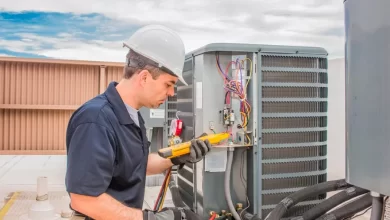
When discussing the topic of environmental protection, as a rule, they talk about the growing amount of unuse waste or the warming of the climate. Other factors, which are mention much less often, have no less influence on the ecosystem.

Not just trash
The growing amount of waste is one of the biggest environmental problems. A huge amount of garbage negatively affects the environment, contributing to its early destruction. However, waste is not only garbage such as plastic bottles, paper, or plastic packaging, but also wastewater. Below you will find more information on the types of wastewater and how they are treated.
A multifaceted problem
When it comes to wastewater, most people think of so-call domestic wastewater from commercial and residential buildings, which is generated by human metabolism and household activities. However, we are not always aware that there are many different types of wastewater. Effective wastewater treatment is one of the key aspects of protecting the environment, both in terms of its growing amount and because of the biological risks associated with wastewater. Thus, we distinguish several types of wastewater:
- household – obtain mainly from residential and household buildings. They can be subdivided into domestic wastewater (low bacteriological pollution, water without toilet flush) and fecal water (high bacteriological pollution);
- industrial – obtained from processes carried out in industrial enterprises;
- agricultural – obtain from agricultural land that may contain, for example, pesticides;
- stormwater – atmospheric precipitation that has been contaminating;
- heat water – water from processes in which it is used as a coolant.

Many solutions
Wastewater is treated in specialized treatment facilities, which use different technologies depending on the type of pollution to be treated. Choosing the right technology is critical to the efficiency of the process. Wastewater treatment methods are divided into:
- Mechanical – consists in removing large organic and mineral suspend particles and floating substances using grids, sieves, sand traps, grease separators, and sedimentation tanks.
- Chemical – often used in industry. Here it is worth highlighting the method of coagulation, Which consists of binding colloidal molecules into larger particles so that in this way a precipitate in the form of a coagulum can be precipitated. Also popular is the method of neutralizing wastewater with substances with the opposite effect. Neutralization can be carried out by mixing with appropriate reagents, Adding them to the wastewater, or bypassing acidic wastewater through sediments such as limestone.
- Biological – they, as a rule, are only one of the stages of the wastewater treatment process. This process is based on the consumption of pollutants in wastewater by microorganisms as food. During biological wastewater treatment, processes such as decomposition of substances, nitrification, and denitrification take place.
As you can see, there are many effective ways to treat wastewater. For the best environmental protection, different cleaning methods are often used together. This is especially important in places where there are different types of wastewater, and one process is not enough for their effective treatment.

Modern technology
Within the PCC Group, a responsible approach to environmental management is critical due to the business profile and changing market demands. The company is constantly expanding its range of environmentally friendly products in the Greenline series, as well as introducing new technologies that help to effectively reduce the negative impact on the environment. The recently modernized wastewater treatment plant in Brzeg Dolny serves not only the industrial park but the entire city. That is why it was important to use the latest technology to effectively filter various types of wastewater. Besides, The PCC group has also taken care of the comfort of employees and residents by implementing a variety of technologies aimed at neutralizing unpleasant odors arising from the cleaning process.
More information about this and other projects can be found on the PCC Rokita SA website.
We also recommend that you familiarize yourself with the PCC range of products, develop them in accordance with the idea of environmentally friendly chemistry.





